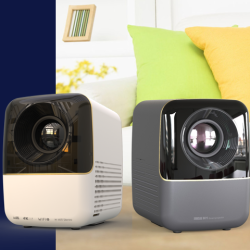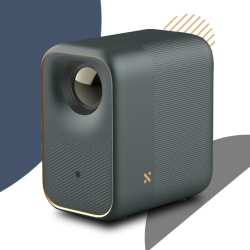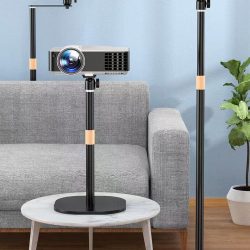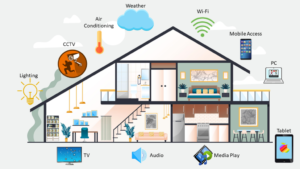Choosing a home or office projector can be a bit overwhelming with so many options available in the market. To help you make an informed decision, here are some factors to consider when choosing a projector:
1. Purpose: Determine the primary purpose of the projector. Are you planning to use it for watching movies, gaming, presentations, or a combination of these? Different projectors have different features optimized for specific uses.
2. Projection Technology: There are three main types of projection technologies: LCD, DLP, and LCoS. Each has its own advantages and disadvantages. LCD projectors are known for their color accuracy, DLP projectors offer smoother motion, and LCoS projectors provide high contrast ratios. Research and compare the technologies to find the one that suits your needs.
3. Brightness: Consider the ambient light conditions in the room where the projector will be used. If you have a dedicated home theater room with controlled lighting, a lower lumen output might be sufficient. However, if you plan to use the projector in a living room or other well-lit spaces, you’ll need a higher lumen output for better visibility.
4. Resolution: Projectors come in various resolutions, including HD (720p), Full HD (1080p), and 4K Ultra HD. Higher resolutions generally offer sharper and more detailed images, but they also come at a higher price. Consider your viewing preferences and budget when deciding on the resolution.
5. Throw Distance and Screen Size: Determine the available space in your room and the desired screen size. Projectors have different throw ratios, which determine how far they need to be placed from the screen to achieve a specific image size. Calculate the throw distance required for your desired screen size and ensure it matches your room layout.
6. Connectivity and Compatibility: Check the projector’s connectivity options to ensure it can connect to your desired input devices, such as Blu-ray players, gaming consoles, or streaming devices. Also, verify the compatibility with the video and audio formats you intend to use.
7. Keystone Correction and Lens Shift: Look for a projector that offers keystone correction and lens shift features. Keystone correction helps adjust the image shape if the projector is placed at an angle, while lens shift allows you to move the lens horizontally or vertically to adjust the image position without physically moving the projector.
Based on the points mentioned above, we are pleased to recommend LOTA’s new Q1 Pro smart projector to you. It uses the current hottest and most mature LED solution, 1080HD resolution, with one-click focus, support for ladder correction, brightness up to 250 ANSI lumens. 1.38:1 projection ratio makes screen 40’’ to 200’’. It meets the use of normal light in homes, offices and schools. Q1 Pro is based on Android system and supports Youtube, Netflix and other apps. At the same time, it supports WiFi, Bluetooth, USB, HDMI, and also supports mobile phone projection function.
The Q1 Pro is not the best equipped smart projector on the market. But when you look at its performance and price, you will agree with me that it is the most cost-effective smart projector on the market.







